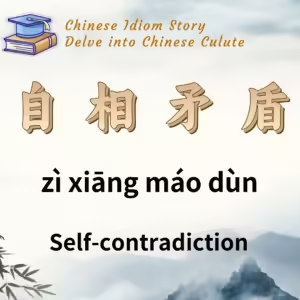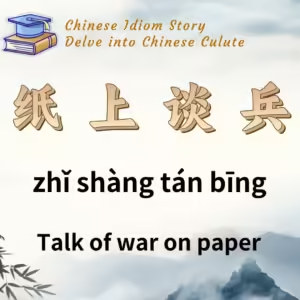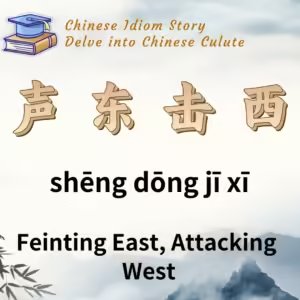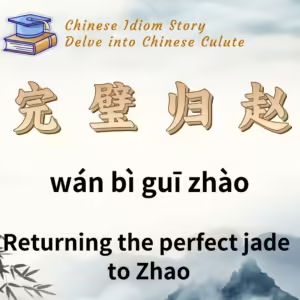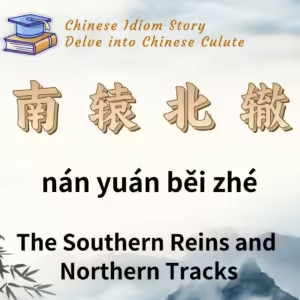
Chinese Idiom: 南辕北辙 (Nan Yuan Bei Zhe)
English Translation: The Southern Reins and Northern Tracks
pīn yīn: nán yuán běi zhé
Idiom Meaning: This idiom metaphorically signifies actions that are in direct contradiction to one’s goals or intentions. It describes a situation where one’s efforts lead away from the desired outcome, emphasizing a fundamental misalignment between direction and objective.
Historical Source: Strategies of the Warring States (战国策) – Wei Strategies IV
Idiom Story:
During the Warring States period, King Wei of the State of Wei planned to launch a military expedition against the capital of Zhao, Handan. One of his ministers, Ji Liang, who was traveling at the time, disagreed with this aggressive plan. Upon hearing the news, he immediately abandoned his trip and rushed back to the capital without even changing his clothes or washing his face.
When Ji Liang arrived, King Wei was curious and asked, “Why are you back so soon? Is there something urgent?”
Ji Liang replied seriously, “Yes, I saw a man trying to drive a horse-drawn carriage to Chu. I asked him, ‘Chu is to the south of Wei. How can you go to Chu if you are heading north?’ He replied, ‘My horse runs very fast.’ I told him that no matter how fast his horse runs, he was on the wrong path. He insisted, ‘It doesn’t matter; I have plenty of money for the journey.’ I reminded him again, ‘Even with enough travel money, this is still not the way to Chu.’ Yet he continued to say that he had an excellent driver!”
Ji Liang concluded his tale, “You see, even if his conditions are good, he is going in the opposite direction. The better his conditions, the further he strays from Chu!”
King Wei could not help but laugh at the foolishness of such a person. However, Ji Liang then turned serious, stating, “Your Majesty often speaks of wanting to become the leader among the states, which requires gaining the trust of other rulers. But if you continue to rely solely on your strong army and abundant supplies to attack Zhao, you will only move further away from your goal, just like that man heading north while wanting to go south.”
After hearing Ji Liang’s wise words, King Wei fell silent and pondered for a moment before abandoning his original plan.
The idiom “南辕北辙” thus serves as a reminder to align actions with intentions and goals, highlighting the folly of misdirected efforts.

